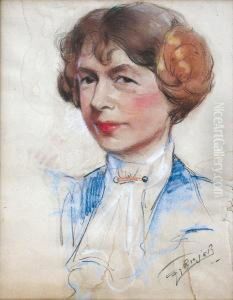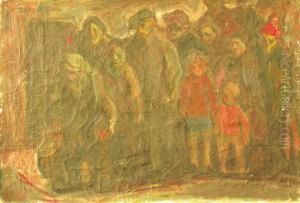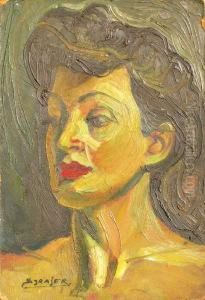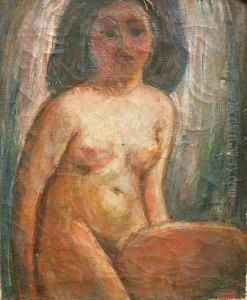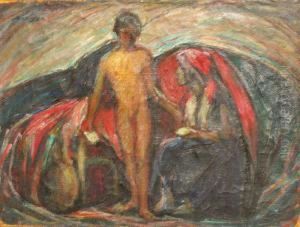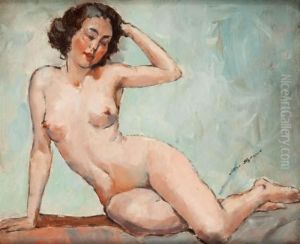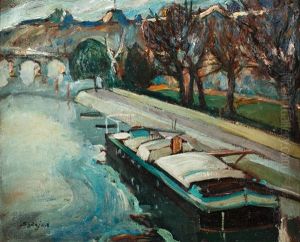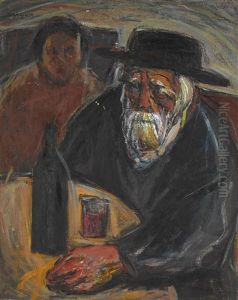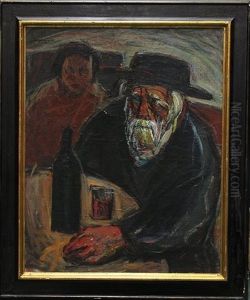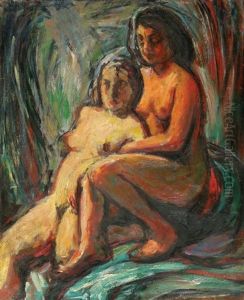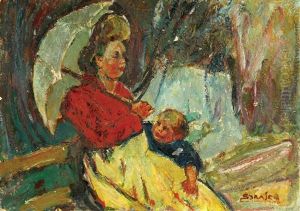Seweryn Szrejer Paintings
Seweryn Szrejer was a Polish artist whose life and career were tragically cut short by the events of World War II. Born in 1908 in Poland, Szrejer grew up during a time of significant political and social upheaval in Europe. Despite the challenges of his era, he developed a passion for art at a young age, showing particular interest in painting and drawing. His early works were influenced by the Polish art scene of the 1920s and 1930s, which was characterized by a mix of modernism and a deep reverence for the nation's cultural heritage.
Szrejer's artistic career began to gain momentum in the late 1920s and early 1930s. He was known for his keen observation of social issues, which he often depicted in his art. His style evolved over time, incorporating elements of expressionism and symbolism, through which he explored themes of human suffering, dignity, and the soul's resilience. Szrejer's work was deeply rooted in the Polish landscape and its people, reflecting his commitment to capturing the essence of his homeland's spirit.
The outbreak of World War II in 1939 drastically altered Szrejer's life and artistic career. Like many of his contemporaries, he found himself caught in the devastating conflict that engulfed Europe. The war not only disrupted his artistic pursuits but also endangered his life. Szrejer joined the resistance movement in Poland, using his art as a form of political and moral resistance against the occupying forces. His involvement in the resistance, however, made him a target, leading to his arrest and eventual execution by the Nazis in 1943.
Seweryn Szrejer's legacy is a testament to the power of art as a form of resistance and the tragic impact of war on cultural expression. Despite his brief career, his works remain a poignant reminder of the resilience of the human spirit in the face of tyranny and oppression. Today, Szrejer is remembered as a symbol of Polish resistance and a martyr for the cause of freedom and artistic expression. His art survives as a tribute to the indomitable will of those who fought against injustice through the power of creativity and conviction.

